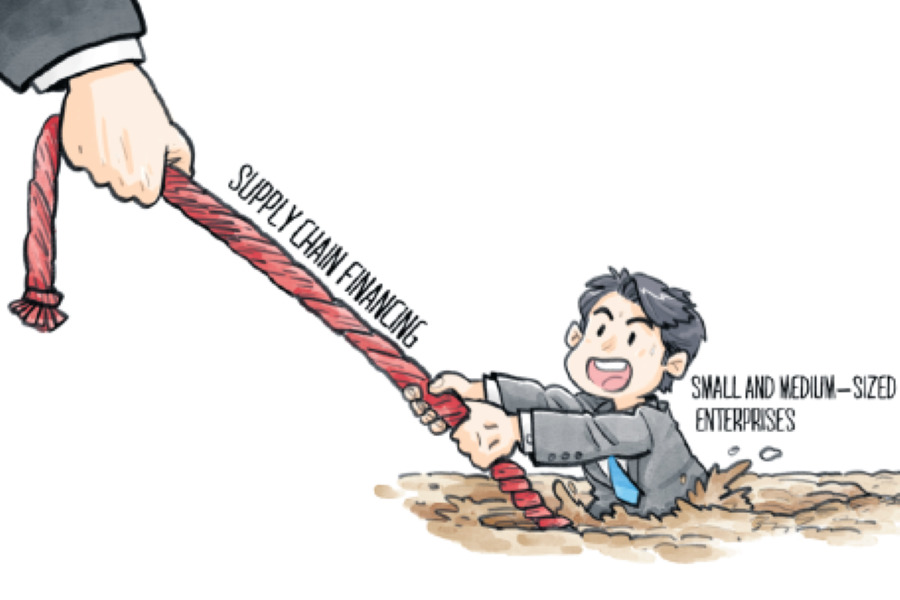Innovative financing bolsters small enterprises


China has launched several financial assistance measures during the COVID-19 outbreak, requiring banks to increase lending to micro, small and medium-sized enterprises (MSMEs) and lower lending rates and various expenses.
However, as the intensity of policy implementation decreases progressively, small businesses and individual-owned businesses may find it hard to access financial assistance.
In general, only large enterprises and quality MSMEs could benefit from the current financial policies.
China has a small number of large enterprises that maintain comprehensive tax and credit records. The government found it easy to reach such large enterprises while launching support policies such as reducing rents or providing hiring subsidies.
MSMEs, on the other hand, are large in number and their scope of activities is vast. But their tax and credit records are not easily available or incomplete, making it difficult for the regulators to have full understanding of their financial health and an accurate view of their requirements.
The central bank's relending and rediscount program, as well as the regulatory policy allowing eligible small businesses to delay loan or interest payments until the end of June, are both targeting companies that have already received loans. But MSMEs have difficulty in obtaining loans from banks, for they cannot offer fixed assets as collateral.
It is also tough to implement some policies properly, including those encouraging banks to lend to small businesses that have never received bank loans or requiring government-backed firms that offer financing guarantees to halve their fees for MSMEs.
After the central government required banks to step up support for small businesses, it became common for large banks to use their size and policy advantages to snatch high-quality clients from regional small and medium banks, for large banks could offer loans at lower rates and have more resources for supplementary services, creating potential imbalances in credit allocation, some banking practitioners said.
The All-China Federation of Industry and Commerce, a non-governmental chamber of commerce, launched a special service during the pandemic through partnership with several banks, including Bank of Communications Co Ltd, which provided 6.15 billion yuan ($867.6 million) in loans to 134 enterprises. The average loan per company was 45.9 million yuan.
These companies are obviously non-typical MSMEs. At some regional banks, MSMEs' demand for loans is usually below 2 million yuan. For some city commercial lenders like Bank of Taizhou Co Ltd, which specializes in serving MSMEs, the average small loan per company is only 60,000 yuan to 70,000 yuan. Financial institutions should make further efforts to help small businesses get through hard times and grow smoothly.
Currently, banks are shouldering major risks associated with the implementation of bailout policies. This is the root cause of inadequate implementation of such policies.
Helping pandemic-troubled companies to navigate the difficult time, protect livelihoods and secure employment has been at the heart of government measures to protect public interest. The government launched some of the bailouts disregarding costs and risks. But, this type of risk should not be undertaken by banks because they are also companies.




































